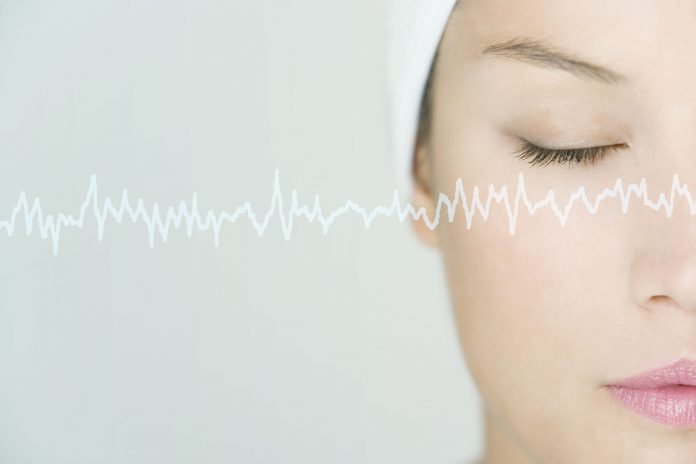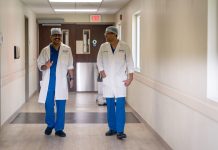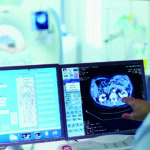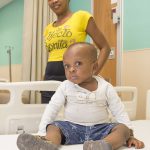We live in a time finite world obsessed with productivity and connectivity. The growing to-do list has taken over from the basic and wholesome need for rest and recovery.
Just as important as other aspects of health, sleep falls down the list of priorities and striking the balance between energy and recovery is extremely uncommon for a lot of people in this 24/7 world.
Many people give in to demands of high performance and deprive themselves of sleep with hopes to extend their productivity, even if it puts their health at risk.
Why do we need it?
Sleep is often seen as a time when the body is inactive. In fact, quite the opposite is true. Sleep is not a lifestyle choice; sleep is an active, essential and involuntary process, and without it we cannot function effectively. Just like breathing, eating or drinking, sleep is a necessary and complex process during which our body undertakes a number of essential activities. Primarily, sleep is for the brain, allowing it to recover and regenerate. During our sleep, the brain can process information, consolidate memory, and enable us to learn and function effectively during the day. Sleep benefits our bodies and minds in so many positive ways, from repairing muscle to keeping a healthy weight and lowering stress levels.
While we sleep, our brain is not only strengthening memories but it is also reorganizing them, picking out the emotional details and helping us produce new insights and creative ideas. A lack of sleep, therefore, affects our ability to use language, sustain attention, understand and summarize information.
If our sleep is compromised, so is our performance, mood, and interpersonal relationships. Would you believe that being awake for 17 hours is equivalent to having a 0.05 blood alcohol content, making day-to-day tasks like driving very dangerous if you are tired and lacking sleep. Official recommendations advise adults need between 7 and 9 hours sleep per day to function at their optimum level.
Sleep is an inconvenient, time-consuming process, but it is so essential that we have simply evolved to fit it into our lives. Your circadian rhythm, or ‘body clock’ as it is more commonly known, is a 24-hour internal clock that is running in the background of your brain and cycles between sleepiness and alertness at regular intervals. The 3 p.m. energy slump that has you reaching for coffee or when you can’t keep your eyes open, is your circadian rhythm kicking in.
Although your circadian rhythm is controlled by your brain, outside factors like light and dark can also impact it. When it gets dark, your eyes send a signal from the optic nerve to the brain that it’s time to feel tired. Your brain, in turn, sends a signal to your body to release melatonin, which makes you feel sleepy.
Your circadian rhythm works best when you go to bed and wake up around the same time. Jet lag, a new baby or a big night out can disrupt your circadian rhythm, which can make you feel lethargic and make it harder to pay attention or focus on tasks. Interestingly, your circadian rhythm will likely change as you get older. If you pay attention to feelings of alertness and drowsiness and spend time developing good sleep hygiene habits, you will sleep better and feel better.
Sleep disorders and treatment
Sleep disorders exhibit themselves in many different forms and a range of symptoms; from insomnia, hypersomnia and parasomnia to sleep-related breathing disorders, sleep movement disorders and circadian rhythm disorders.
As Dr. Archita Joshi-Bhatt from Health City Cayman Islands explains: “to diagnose a sleep disorder a comprehensive questionnaire must be completed by the patient and careful examination of the patient’s history [is undertaken]. A sleep study or polysomnogram (PSG) may then follow to treat certain sleep disorders such as obstructive and complex sleep apneas, periodic limb movement and restless legs syndrome.”
Sleep labs allows patients to undergo a painless overnight test during which several physiologic functions are monitored and evaluated throughout their sleep. These may include brain activity, eye movements, muscle tone, heart rhythm, airflow from the nose and mouth, breathing effort, blood oxygen levels and leg movements.
Small electrodes are attached to surface of specific points on the body to monitor these functions. It takes approximately an hour for the sensor attachment where electrodes are attached to the skin with a paste. The patient will go to bed, with lights out between 8.30 p.m. and 6 a.m. during which time the attached electrodes will analyze and evaluate the relevant data to produce a report on the patient’s sleep state.
There are two sleep labs on island, located at Health City and Cayman E.N.T. Associates. At Cayman E.N.T. Associates, patients suffering from a sleep disorder can spend a night at the sleep lab under the observation of board-certified sleep medicine physician Dr. Frank Glatz.
While some sleep disorders require medical attention, others are behavior or lifestyle-related and can be treated with regular Cognitive Behavioral Therapy (CBT) sessions.
For more information
Health City Cayman Islands
www.healthcitycaymanislands.com
Cayman E.N.T. Associates
www.entcayman.com
Further Resources
 Apps and More to Help you Sleep
Apps and More to Help you Sleep
 Top Tips for a Good Night’s Sleep
Top Tips for a Good Night’s Sleep








